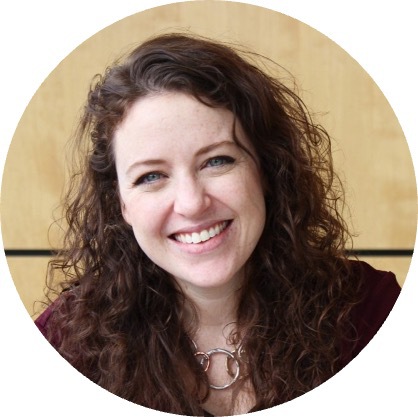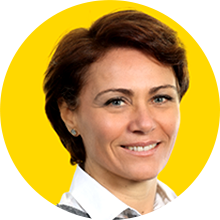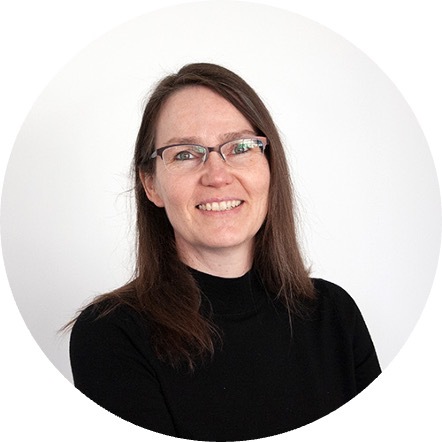Engineering a Better Future: Celebrating Women’s Achievements on International Women in Engineering Day
Today, we proudly celebrate International Women in Engineering Day! In honor of this special day, we interviewed some of the outstanding women in the field of engineering within the PSA Certified partnership. These remarkable individuals have made significant contributions to the world of technology and continue to inspire others with their expertise, innovation and determination.
In this interview, we had the privilege to sit down with four extraordinary women from two of our PSA Certified partners, Eurotech and STMicroelectronics.
Join us as we delve into their journeys, learn insights from their experiences, and highlight the incredible achievements of women in engineering. Together, let’s pave the way for a more inclusive and diverse future in the realm of IoT devices and beyond.

Lindsay Hilbelink, the Strategic Marketing Manager at Eurotech

Nathalie Vallespin, Product Line Marketing Manager for STM32 2.4GHz wireless technologies at STMicroelectronics

Dr. Souhir Mhira, a High-Performance and AI MCU Security Technical Marketing Engineer at STMicroelectronics

Angelika Moser, a Sales Engineer at InoNet, Eurotech Company
What advice would you give to young women who are considering pursuing a career in engineering?
[Lindsay Hilbelink] Go for it! No other career gives you as great an opportunity to see and shape the future. Find the topic, job or project that makes you excited to get up in the morning and you’ll have a long, rewarding career.
[Nathalie Vallespin] Girls must be confident in their abilities and capabilities, there are many advantages they have to offer in engineering.
[Angelika Moser] When I studied precision engineering 30 years ago, only 5% of the students were women. Only half of the students passed the intermediate diploma, and while only 40% of the men graduated, 100% of the women did. Competence has nothing to do with gender. Go your way. The best thing that can happen to you is to see your profession as a calling. If you enjoy something, don’t let anything stop you or discourage you, but have the courage to realize that you can do it at least as well as men.
[Dr. Souhir Mhira] To young women considering a career in engineering, I would say that today, the possibilities are endless, the world needs women in these fields; to bring their unique perspectives and contributions. Having the feminine touch within a team is incredibly valuable, as it brings diversity of thought and fosters innovation. Believe in your abilities, embrace your passion for problem solving, and pursue your dreams in engineering.
Remember; you have the potential to make a remarkable impact and shape the future of technology and society.
I strongly believe that today, there is a growing understanding of the immense importance of having women in the engineering team. I can sense a positive shift in mindset among companies and managers who actively support and encourage gender diversity.
Have you faced any challenges or obstacles in your career due to your gender? If so, how did you overcome them?
[Lindsay Hilbelink] I’m thankful for the previous generations of women who fought and won a seat at the table. But yes, there are still gatekeepers and glass ceilings. Sometimes it’s more subtle – being interrupted more than your male counterparts, for example. And other times, it’s more overt.
- Call it out – often these invisible barriers are put up unconsciously. It can be scary, but when you bring those problems to the light, most people will consciously most people will make a conscious effort to make a change.
- Remember that too often the people whose voices are heard are simply the loudest. Don’t be discouraged if your ideas aren’t heard immediately – that doesn’t mean they aren’t valuable. Continue to speak up. You and your company will be better for it!
- Find companies whose culture cultivates female leadership. Do they have female leaders? How do they promote diversity in the workplace? In the US, parental leave isn’t guaranteed. I find a company’s approach to parental leave is a good indicator of who they’re looking to support. If there’s a solid maternity leave in place, they usually care about attracting and retaining young female talent. If there’s a strong paternity leave in place, they likely understand that, like the business world, parenting is not a single-gender role and are willing to support families in finding the balance that allows both parents to achieve fulfilment at home and in the workplace. When Eurotech approached me for this role, I was well into my second trimester. I brought this up with the team and explained that if the timing wasn’t great, I wanted to remove myself from the applicant pool. They were, and have continued to be, extremely supportive of me. They’re dedicated to making this company a great place to work for everyone.
- Lean into your female professional network. I’ve been fortunate to have a group of like-minded female colleagues that have provided support and insights throughout my career. We help each other troubleshoot challenges, work through setbacks, and enthusiastically lift up and promote one another.
- Finally, in the (thankfully) rare case of an overt offence, I worked with a female lawyer who had the best response: “I don’t understand, explain it to me.” If the answer is “‘because you’re a woman,” or something similarly offensive, making them verbalize it is a simple, elegant (and, admittedly, satisfying) way to address the behavior!
[Nathalie Vallespin] I have encountered obstacles in the past due to gender, but this was easily managed through loud clear messages and behaviour. However, in my career, I’ve experienced more displays of very good behaviour than bad!
[Angelika Moser] In my career, I have been confronted with prejudice and stereotypes. A typical example is a phone call. When I answered the phone, I was usually assumed to be the secretary, and they said, “Can you put me through to someone who knows or is in charge?” When I answered that it was me, there was silence for a moment. Another time, I used a funny trick for my e-mail signature. Instead of Angelika Moser, I wrote A. Moser, and then I was usually addressed as Mr. Moser. But jokes aside, I proved my competence in projects and clients even called me directly for advice.
How do you think diversity in the engineering field can benefit companies and society as a whole?
[Lindsay Hilbelink] Engineering, at its core, is problem solving. If everyone approaches the problem from the same angle, you’ll never innovate. Diversity can be a team’s greatest strength, so long as all voices are heard.
I’d also add that one, homogenous group will only represent one perspective and one set of problems. When we add team members of different backgrounds and perspectives, we have an opportunity to impact society’s challenges on a broader, more holistic scale.
[Angelika Moser] It is very important to have different perspectives and viewpoints in projects. Everyone has their own strengths, such as my pragmatic approach, which are important assets to project teams.
[Nathalie Vallespin] Diversity helps the way we approach a topic as a team by offering a different angle. Women often join the discussion with a lot of humility, technically speaking, and offer a deep dive into the proposition submitted.
How do you think the engineering field can become more inclusive and supportive of women and other underrepresented groups?
[Lindsay Hilbelink] Similarities make us comfortable, it’s human nature. But too often these comfort zones can become blinders. It’s key that companies find concrete ways to help employees identify and work through their conscious and unconscious biases. Personally, I’m a big fan of implicit bias training. We all have implicit biases but recognizing them and employing tools to overcome them can make us better employees, teammates, and members of society.
[Nathalie Vallespin] The engineering field needs equity from the ground up, starting with girls choosing engineering schools, then coaching or co-optation inside companies from women and men once they’re in their job.
[Angelika Moser] It is important to introduce women to technology at an early age, for example in kindergarten and school. In my experience, women are already underrepresented in technical fields during their school careers. For example, with application-oriented workshops. More should be done to encourage, reward and support them. The situation continues in the workplace. Women have to juggle work, children and home life: If a child is sick, not only women should stay at home. This requires flexibility on the part of the employer to allow men to take parental leave and time for home care.
How do you think the engineering field can become more inclusive and supportive of women and other underrepresented groups?
[Lindsay Hilbelink] Similarities make us comfortable, it’s human nature. But too often these comfort zones can become blinders. It’s key that companies find concrete ways to help employees identify and work through their conscious and unconscious biases. Personally, I’m a big fan of implicit bias training. We all have implicit biases but recognizing them and employing tools to overcome them can make us better employees, teammates, and members of society.
[Nathalie Vallespin] The engineering field needs equity from the ground up, starting with girls choosing engineering schools, then coaching or co-optation inside companies from women and men once they’re in their job.
[Angelika Moser] It is important to introduce women to technology at an early age, for example in kindergarten and school. In my experience, women are already underrepresented in technical fields during their school careers. For example, with application-oriented workshops. More should be done to encourage, reward and support them. The situation continues in the workplace. Women have to juggle work, children and home life: If a child is sick, not only women should stay at home. This requires flexibility on the part of the employer to allow men to take parental leave and time for home care.
Can you share a project or accomplishment that you’re particularly proud of in your career?
[Lindsay Hilbelink] This isn’t software engineering related, as I have a bit of a different background, but I’m most proud of what I’ve done in the healthcare space. I was given the opportunity to leverage my microbiology background in a product management role for an infection prevention line. Through the course of my role, I had the opportunity to listen to and observe thousands of clinicians. It allowed me to intimately understand their challenges and to develop products and solutions that had a real impact on their job and their patient results. To have even a small role in our customers’ achieving zero infections or better patient outcomes gave me such a sense of accomplishment and made all the work well worth it!
[Nathalie Vallespin] I’m proud of the overall evolution in my career, starting in design engineering, moving to customer support and application, and then to marketing. Growing is an important aspect in both your career and personal life, be proud of the movements you’ve made to be where you are today.
[Angelika Moser] I have had many exciting projects, such as a project with fanless panel PCs for industrial use in high volumes, where I was involved from manufacturing to delivery. This included solving mechanical and electrical challenges, sometimes also board customization or matching the display to the computer board, key and even PLC programming. My all-around understanding and pragmatic nature were of great value to the team.
[Dr. Souhir Mhira] I have many things that I am proud of in my career. One of them is achieving my first best paper award in the inaugural edition of ITC India. I presented my thesis and represented my company all by myself, and it was an incredibly rewarding experience to receive recognition for my work. I take pride in being involved in various projects, starting from a single transistor to the final product and system. Recently I have also been engaged in the field of security and the PSA Certified world, which has been an exciting challenge for me. I am proud of my fearlessness and my willingness to embrace challenges, As I firmly believe that we are here to learn and grow.
Have you had any mentors or role models who have helped shape your career?
[Lindsay Hilbelink] Too many to count! I’ve been fortunate to have both male and female leaders who have believed in me and supported my growth. In particular, one female boss has shaped who I want to be as a professional and business leader. She both believed in me and pushed me to do bigger, more challenging things. The confidence I gained from that experience helped me succeed even in challenging environments.
[Nathalie Vallespin] One relevant and motivated talk when I was a student working in the summer with a retired woman from the aeronautic field, she told me that more women need to go for technical jobs and be sure and confident of the value that we bring.
[Angelika Moser] My biggest role model is definitely my father. He has always encouraged and motivated me, from school to university. His tireless inventiveness and love for technology have always impressed and inspired me.
A motto that I like to keep in mind to overcome difficult challenges in my career is; If you want to, you can do almost anything. I also learned this saying from my father who is “self-taught”.
